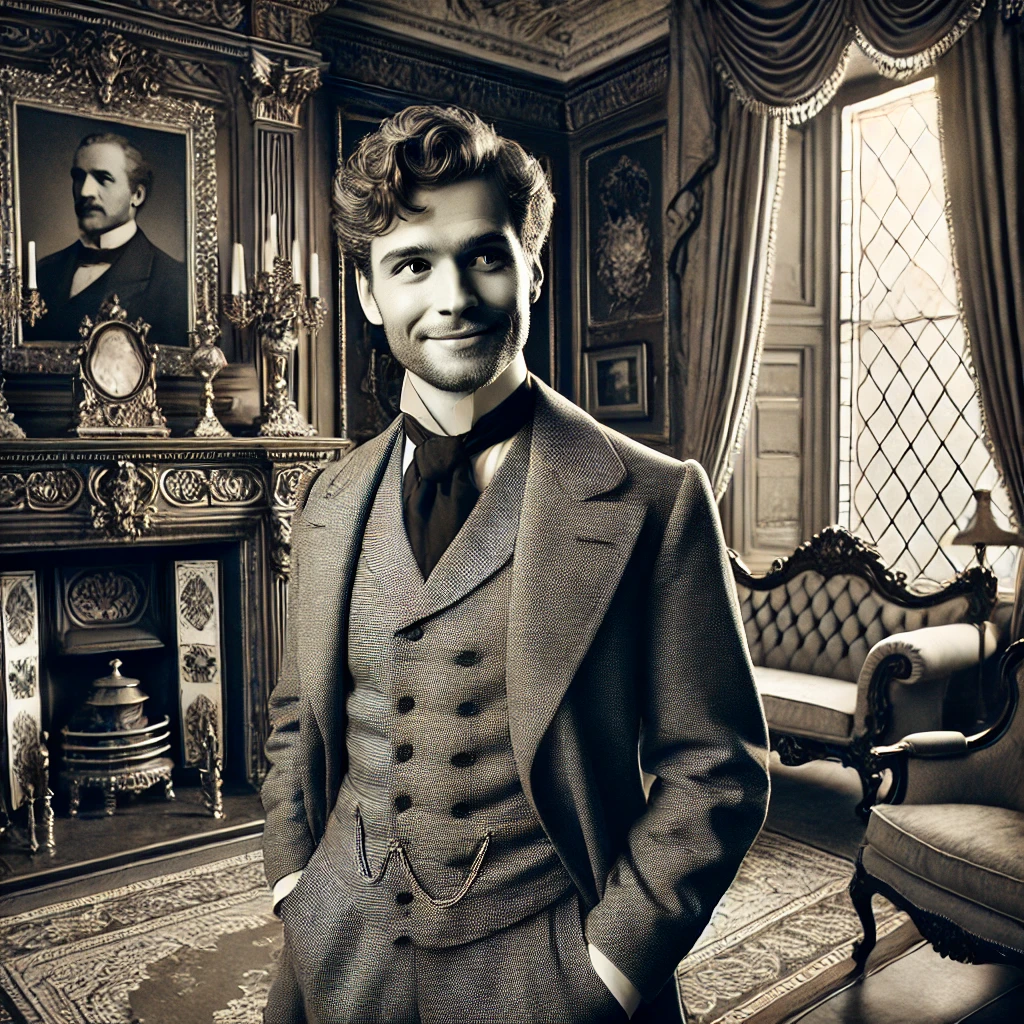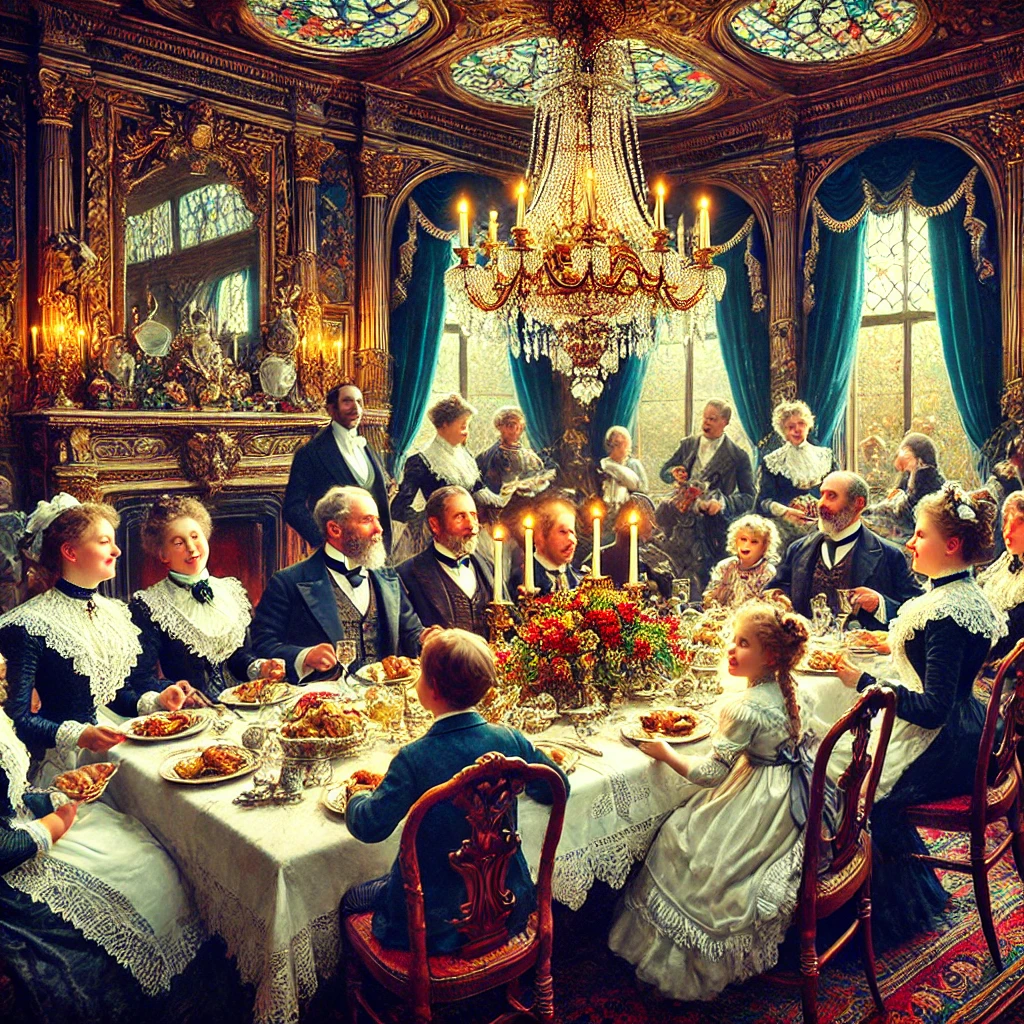Once upon a time, in the absurdly posh world of Victorian England, two dapper young gentlemen named Jack Worthing and Algernon Moncrieff lived lives filled with the utmost triviality and frivolity—triviality and frivolity so extravagant that even the very essence of their existence seemed like a farcical performance. Jack, a respectable gentleman in the countryside, led a double life. In the country, he was the serious and responsible Jack. In the city, he was the carefree and utterly irresponsible “Ernest.” The alter ego “Ernest” allowed Jack to escape the rigid confines of propriety whenever he felt the urge to indulge in the reckless abandon of city life. Little did he know, his escapades would lead to a tangled web of mistaken identities and ridiculous predicaments.
Enter Algernon Moncrieff, a man equally adept at the art of deception. Algernon had invented an imaginary friend named Bunbury, whose perpetual ill-health provided Algernon with a convenient excuse to escape tiresome social obligations. The concept of “Bunburying” became a cherished pastime for Algernon, allowing him to indulge in all manner of delightful escapades without the burden of accountability.
As fate—or Wilde’s masterful plot construction—would have it, Jack fell madly in love with Gwendolen Fairfax, Algernon’s cousin. Gwendolen, a lady of exquisite taste and remarkably firm opinions, harbored an unshakeable conviction that she could only ever love a man named Ernest. The name itself, to her, symbolized the epitome of earnestness and trustworthiness. Jack, eager to win Gwendolen’s heart, found himself ensnared in his own web of deceit, forced to maintain his “Ernest” persona.

Meanwhile, Algernon, ever the mischievous rascal, discovered Jack’s country estate and promptly decided to visit under the guise of “Ernest,” Jack’s fictitious brother. In the countryside, Algernon encountered Cecily Cardew, Jack’s charming and romantically imaginative ward. Cecily, who had long been fascinated by the tales of “Ernest’s” wild exploits, found herself utterly enchanted by Algernon’s fabricated identity. Algernon, smitten by Cecily’s beauty and naivety, was more than happy to continue the charade.
And so, the stage was set for a series of deliciously convoluted misunderstandings. Gwendolen arrived at Jack’s country estate, only to be confronted by the perplexing presence of another “Ernest.” The ensuing interactions between Gwendolen, Cecily, Jack, and Algernon were a whirlwind of mistaken identities, cleverly crafted lies, and hilariously earnest declarations of love. The sheer absurdity of it all was enough to make even the sternest of Victorian eyebrows raise.
Adding to the delightful chaos was the formidable Lady Bracknell, Gwendolen’s mother and the very embodiment of aristocratic propriety. Lady Bracknell’s interrogation of Jack revealed the scandalous truth of his origins—he was a foundling, discovered in a handbag at Victoria Station. This revelation was met with a mixture of horror and disdain from Lady Bracknell, who promptly forbade the union between Jack and Gwendolen. The handbag revelation, however, would prove to be a pivotal clue in unraveling the mystery of Jack’s true identity.
As the layers of deception were peeled away, the characters found themselves confronting the absurdity of their own pretenses. Jack’s true identity was revealed in the most unexpected of ways—he was, in fact, Algernon’s long-lost elder brother. The name “Ernest” turned out to be his given name all along, bestowed upon him by his late father. In a delightful twist of irony, Jack discovered that he had been earnest in name, if not in nature, the entire time.
The denouement of this farcical tale saw the lovers reunited, their misunderstandings resolved, and their affections solidified. Jack and Gwendolen, Algernon and Cecily—each pair rejoiced in the serendipitous turn of events that had brought them together. Lady Bracknell, though initially resistant, ultimately relented, accepting the unions with her characteristic mixture of hauteur and begrudging approval.
Oscar Wilde’s “The Importance of Being Earnest” is a masterpiece of wit and irony, a gleeful mockery of societal conventions and the absurdity of human pretensions. Through its cleverly crafted dialogue and farcical situations, the play exposes the trivialities and hypocrisies that underpin Victorian society. Wilde’s characters, with their exaggerated earnestness and delightfully convoluted deceptions, serve as both a mirror and a magnifying glass, reflecting and magnifying the absurdities of the world they inhabit.
In the end, “The Importance of Being Earnest” is not merely a play about mistaken identities and romantic entanglements—it is a celebration of the trivialities that make life amusing and the earnestness that, ironically, often conceals the most profound truths. Wilde invites us to laugh at the folly of his characters, and in doing so, to recognize the folly within ourselves. For in the grand theatre of life, we are all, in some measure, both earnest and trivial, playing our parts with a seriousness that is, in itself, utterly ridiculous


